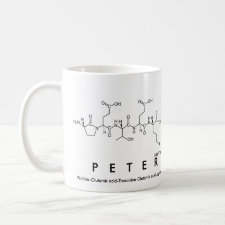
Authors: Mujahid A, Stathopulos H, Lieberzeit PA, Dickert FL
Article Title: Solvent Vapour Detection with Cholesteric Liquid Crystals-Optical and Mass-Sensitive Evaluation of the Sensor Mechanism.
Publication date: 2010
Journal: Sensors
Volume: 10
Issue: (5)
Page numbers: 4887-4897.
DOI: 10.3390/s100504887
Alternative URL: http://www.mdpi.com/1424-8220/10/5/4887/
Abstract: Cholesteric liquid crystals (CLCs) are used as sensitive coatings for the detection of organic solvent vapours for both polar and non-polar substances. The incorporation of different analyte vapours in the CLC layers disturbs the pitch length which changes the optical properties, i.e., shifting the absorption band. The engulfing of CLCs around non-polar solvent vapours such as tetrahedrofuran (THF), chloroform and tetrachloroethylene is favoured in comparison to polar ones, i.e., methanol and ethanol. Increasing solvent vapour concentrations shift the absorbance maximumto smaller wavelengths, e.g., as observed for THF. Additionally, CLCs have been coated on acoustic devices such as the quartz crystal microbalance (QCM) to measure the frequency shift of analyte samples at similar concentration levels. The mass effect for tetrachloroethylene was about six times higher than chloroform. Thus, optical response can be correlated with intercalation in accordance to mass detection. The mechanical stability was gained by combining CLCs with imprinted polymers. Therefore, pre-concentration of solvent vapours was performed leading to an additional selectivity.
Author keywords: cholesteric liquid crystals, organic solvent vapours, pitch, optical absorbance, QCM



Join the Society for Molecular Imprinting

New items RSS feed
Sign-up for e-mail updates:
Choose between receiving an occasional newsletter or more frequent e-mail alerts.
Click here to go to the sign-up page.
Is your name elemental or peptidic? Enter your name and find out by clicking either of the buttons below!
Other products you may like:
 MIPdatabase
MIPdatabase









